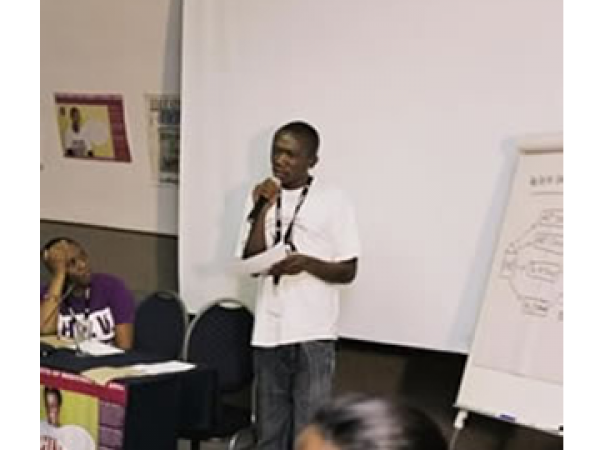Zambian government continues prosecution of gay-rights activist

On 15 August 2013 the Zambian High Court refused to hear a constitutional application by Paul Kasonkomona regarding his right to freedom of expression being violated by police charges against him.
Kasonkomona was arrested on 7 April 2013 after he appeared on television calling on the Zambian government to recognize the rights of sexual minorities including LGBTI people and sex workers in order for the government to effectively curb HIV infections. He was arrested as he left the TV station and charged with “inciting the public to take part in indecent activities”.
The court ruled that no violation of his rights had taken place and the criminal case against Kasonkomona will now proceed on 16 and 17 October 2013 in the Lusaka Magistrate’s Court.
High Court Judge N.A. Sharpe-Phiri ruled, ” that there was no constitutional issue concerning the contravention of fundamental rights of the accused and there was no ground for the court below to make this reference to the High Court.”
According to Anneke Meerkotter of the Southern Africa Litigation Centre (SALC), “what is important is that the concerns about violations of constitutional issues are now on the court record and the Magistrate’s referral of Kasonkomona’s application to the High Court shows that the Magistrate dealing with the criminal case against Kasonkomona is thinking about these issues. The issue of freedom of expression underlies all of the cases against Kasonkomona”.
Kasonkomona is represented by Sunday Nkonde SC, William Ngwira and Bwalya Mubanga from SBN Legal Practitioners. SALC is providing legal support in the People v Kasonkomona case.
The state argued that no constitutional issues were violated and therefore that Kasonkomona’s constitutional application was ”vexatious and frivolous”. The prosecution further argued that the right to freedom of expression has limitations and that section 178 (g) of the Penal Code (under which Kasonkomona has been charged) is such a limitation.
The prosecution argued that Zambia is defined as a Christian country in its Constitution and therefore certain behavior such as sex work and homosexuality is not socially acceptable.
Kasonkomona’s lawyers have filed a constitutional petition to the High Court dealing with the vagueness of the section with which he is charged and violations of his right to a fair trial. The petition will be heard in the High Court on 1 November 2013.
Support independent journalism
Donate using Payfast

Don't miss out on the latest news
We respect your privacy, and promise we won't spam you.
Next: Wind turbine
Previous: Golden shackles

This article is licensed under a Creative Commons Attribution-NoDerivatives 4.0 International License.
